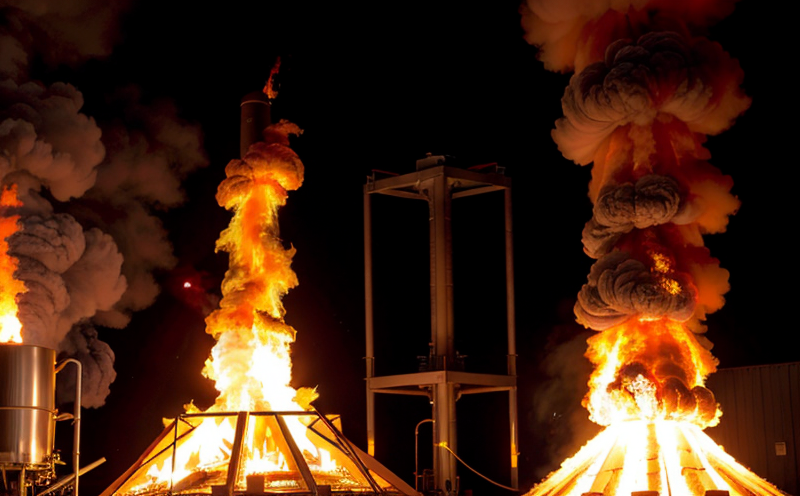Sludge Chemical Safety Testing
The testing of sludge for chemical safety is critical in ensuring environmental and human health compliance. Sludge generated from wastewater treatment plants or industrial processes often contains a wide range of chemicals, some of which can be hazardous if not properly managed. This service focuses on assessing the chemical composition and potential risks associated with sludge through rigorous testing protocols designed to meet regulatory standards.
Our approach involves comprehensive analysis using advanced instrumentation such as gas chromatography-mass spectrometry (GC-MS), inductively coupled plasma mass spectrometry (ICP-MS), and high-performance liquid chromatography (HPLC). These methods allow for the identification of various organic and inorganic compounds present in the sludge. Additionally, we evaluate the solubility, bioavailability, and toxicity levels to provide a holistic view of the chemical safety profile.
The testing process begins with thorough sample preparation which includes homogenization to ensure uniformity across all samples. Once prepared, the samples are analyzed according to internationally recognized standards such as ISO 15267-1:2018 and ASTM D4297. The results of these analyses provide critical data on the potential risks posed by the sludge.
In our laboratory, we employ a multidisciplinary team of experts who are well-versed in chemical analysis and environmental science. This ensures that every aspect of the testing process is conducted with precision and care. Our state-of-the-art facilities equipped with cutting-edge technology support this rigorous approach to quality assurance.
The importance of accurate and reliable data cannot be overstated when it comes to making informed decisions about how to manage sludge safely. By adhering strictly to international standards, we ensure that our findings are credible and can be trusted by regulatory bodies and stakeholders alike.
Applied Standards
| Standard | Description |
|---|---|
| ISO 15267-1:2018 | This standard specifies procedures for the determination of metals in sludge by inductively coupled plasma mass spectrometry (ICP-MS). |
| ASTM D4297 | This method covers sampling and analysis of organic compounds in waste materials. |
These standards provide a framework for consistent and accurate measurement, ensuring that the results from our testing are valid and reliable. By adhering to these internationally recognized guidelines, we ensure that our clients receive data they can trust.
Eurolab Advantages
At Eurolab, we pride ourselves on delivering high-quality services tailored specifically to meet the needs of our clients. Our commitment to excellence is reflected in every aspect of our operations—from sample preparation and analysis through reporting and interpretation.
- Innovative Techniques: We utilize leading-edge technologies that offer unparalleled accuracy and precision.
- Experienced Staff: Our team comprises highly skilled professionals with extensive experience in chemical testing and environmental science.
- Comprehensive Reporting: Every test comes with detailed reports that provide not only the results but also recommendations for safe handling and disposal of sludge.
- Regulatory Compliance: We ensure all our practices comply with relevant regulations, providing peace of mind to our clients.
The combination of these advantages ensures that we deliver exceptional services that meet or exceed client expectations. Whether you are a quality manager looking for assurance on your products' safety or an R&D engineer seeking reliable data to inform your research, Eurolab is here to help.
Quality and Reliability Assurance
Evaluation of sludge chemical safety involves several key steps aimed at ensuring the accuracy and reliability of our findings. The process starts with meticulous sample preparation, followed by thorough analysis using sophisticated instrumentation. Our laboratories are equipped with state-of-the-art equipment that adheres to strict calibration and maintenance schedules.
The analytical methods used include but are not limited to GC-MS for volatile organic compounds (VOCs), ICP-MS for heavy metals, and HPLC for pesticides and pharmaceutical residues. Each step of the process is documented meticulously, ensuring transparency and traceability throughout the entire testing cycle.
We employ rigorous quality control measures at every stage to minimize errors and ensure consistency in our results. This includes regular internal audits, participation in proficiency testing programs, and continuous training for our staff. The use of certified reference materials (CRMs) further enhances the reliability of our findings by providing a benchmark against which all samples are compared.
The combination of advanced technology, skilled personnel, and stringent quality control protocols guarantees that every test conducted at Eurolab meets the highest standards of accuracy and precision. Clients can rest assured knowing they receive trustworthy information about their sludge's chemical composition and potential risks.





